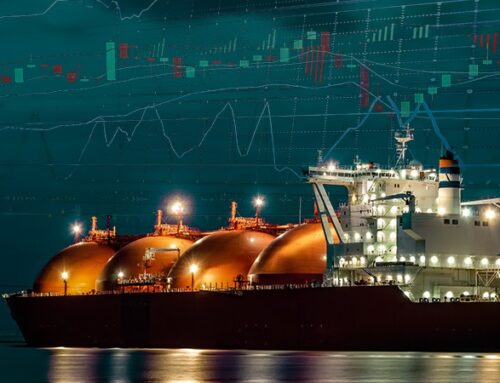Last week I wrote about the pressure UK businesses and public sector organisations are facing in relation to their energy supply agreements with Gazprom Energy and Gazprom Marketing & Trading (“GMT”). Some organisations such as Centrica have announced they are terminating their agreements with the Russian energy giant, while others such as Ecotricity have determined not to. Ecotricity says the break cost would be too expensive.
“We have a trading relationship with them (Gazprom)… We dug into the numbers in our trade book – turns out 5% of our gas is bought in advance (hedged) with Gazprom, for the next 12 months. We looked at the implications of breaking that contract. We would incur pretty massive penalties – the rule of law still applies here – of approaching £10 million. And they can easily sell that gas for more than we have agreed to pay for it,”
– Dale Vince, Founder of Ecotricity
However the company may have to think again, since GMT and its subsidiary Gazprom Energy are rumoured to be in financial difficulties, and potentially about to follow Bulb into Special Administration. The company supplies around a fifth of the UK business market, and the actions of clients and counterparties shunning it is reportedly creating problems for the organisation.
Over the weekend, McDonald’s, Siemens and Biffa confirmed they were in talks with Gazprom about exiting their supply contracts which are collectively worth millions of pounds. NHS England has been told by the Health Secretary to stop buying from Gazprom, as has Sheffield Forgemasters which is owned by the Ministry of Defence. Councils are asking the Government to change the law to allow them to exit their supply agreements without violating non-discrimination rules which require contracts to be managed purely on an economic basis. Industry groups report concerns over the situation.
“It’s akin to a run on the banks. You can draw parallels to the public queuing up outside a bank, Northern Rock-style,”
Richard Leese, chairman of the Energy Intensive Users Group
In 2020, Gazprom Marketing & Trading Retail Limited (a subsidiary of GMT which trades as Gazprom Energy) reported revenues of £1.3 billion, a reduction of £300 million on the previous year, and made a small loss. The company employs almost 300 people, and has over 60,000 commercial customers, operating primarily in the UK as well as France and the Netherlands. It is the largest single supplier to the UK commercial sector with 22.2% of the market in 2020. UK-based GMT staff are apparently also deserting the company, further harming its operations, and the three Russian directors of Gazprom Marketing & Trading Retail Limited resigned on 10 March.
Rivals have told the press they have been sounded out for a potential sale of the business, although it’s unclear that this would be possible under sanctions rules – any buyer would need to be certain that the proceeds of such a sale would not lead back to a sanctioned entity (or otherwise to the Russian state which would be perceived as funding the war in the Ukraine). Other challenges relate to the issue of hedging – no-one is likely to be interested in acquiring a large customer portfolio containing fixed priced deals unless the associated hedges can be assigned at the same time.
Elsewhere in Europe, Bloomberg reports that almost all of Europe’s large energy companies have instructed their traders not to execute over-the-counter deals with GMT, including TotalEnergies, Engie and OMV. Some smaller traders are said to still be engaging with GMT, and while several utilities with long-term supply agreements with Gazprom including RWE, E.ON and Uniper will continue with their existing contracts but will not enter into any new ones.
It is unclear specifically which Gazprom entity or entities would be covered by the special administration, but it is likely to include Gazprom Marketing & Trading Retail Ltd rather than its parent, GMT. This morning, the company updated its website, stating:
“…recent media coverage about the UK government making preparations to nationalise Gazprom Energy is sensationalist. We are in constant contact with our regulator Ofgem and no decision has been taken to appoint a special administrator or supplier of last resort (SOLR) that we know about.”
It is unlikely that businesses will draw much comfort from this, and prospective buyers are more likely to prefer to buy parts of the customer book from an administrator for political and reputational reasons, than to buy any part of the Gazprom business directly (unless the Government steps in to broker a deal). Interestingly, the very reasons cited by the company to give comfort to the market – that it does not supply Russian gas in the UK and buys on the same basis as other counterparties – undermines its credit strength. As counterparties pull back, the company risks losing access to liquidity and ultimately the ability to perform under its contracts.
The growing rumours of a collapse are potentially strengthening the ability of counterparties and customers to terminate on credit grounds – the more customers that leave the worse the business outlook for the company will be, with implications for the remaining customers and any small suppliers using the company as a gas shipper.
Either way, the situation adds to the difficulties faced by energy consumers in the British market.






Problem solved?
https://www.energylivenews.com/2022/04/01/gazprom-exits-london-based-gazprom-marketing-trading/
More…
https://www.energylivenews.com/2022/04/08/german-government-takes-control-of-uk-arm-of-gazprom/
Indeed, this changes things significantly and the German government is asking businesses to stop trying to get out of Gazprom conracts now. I’m going to cover this more in an upcoming blog.